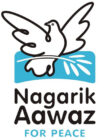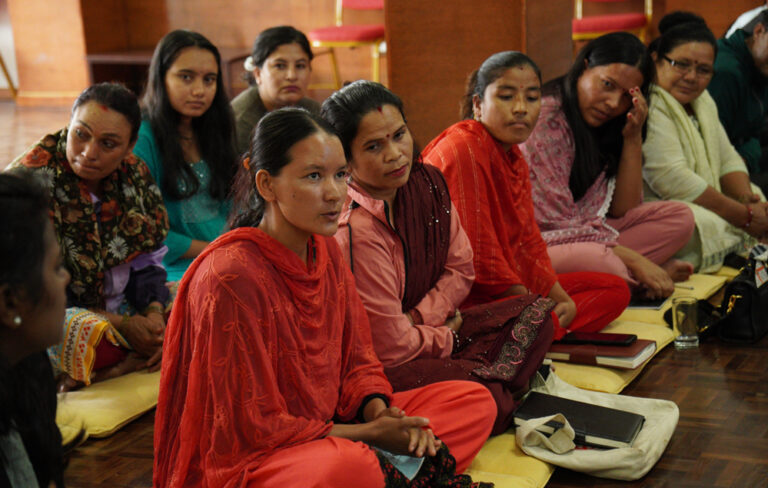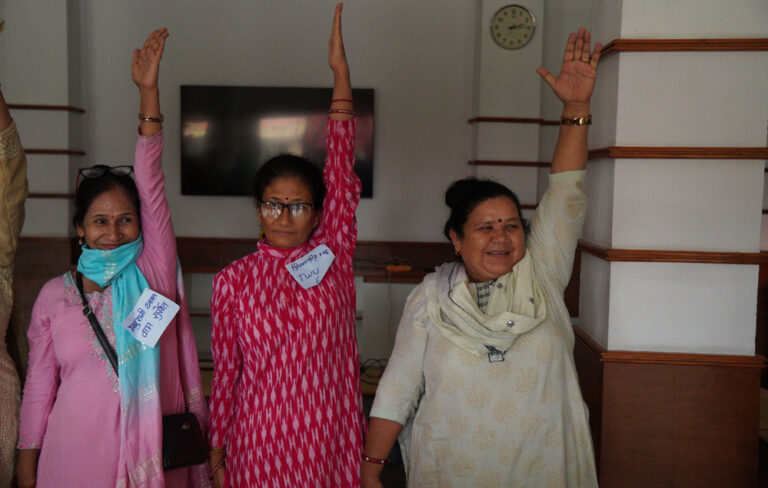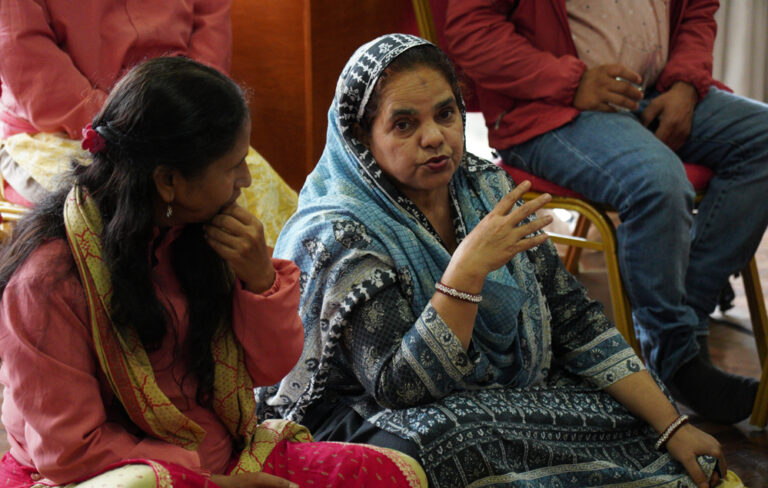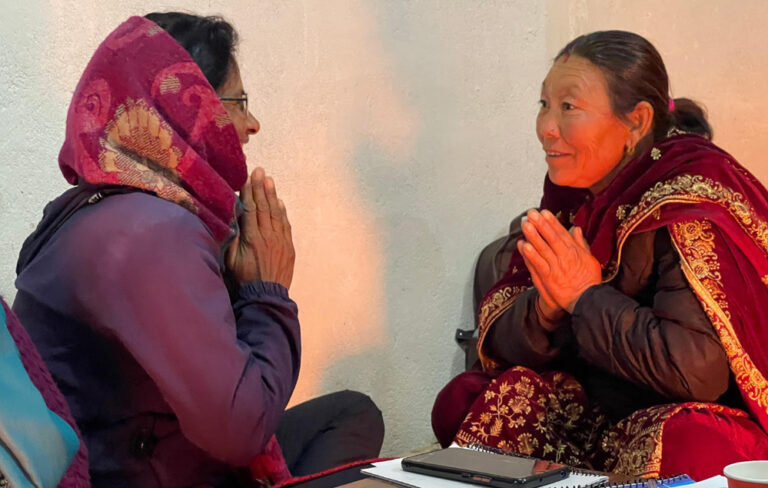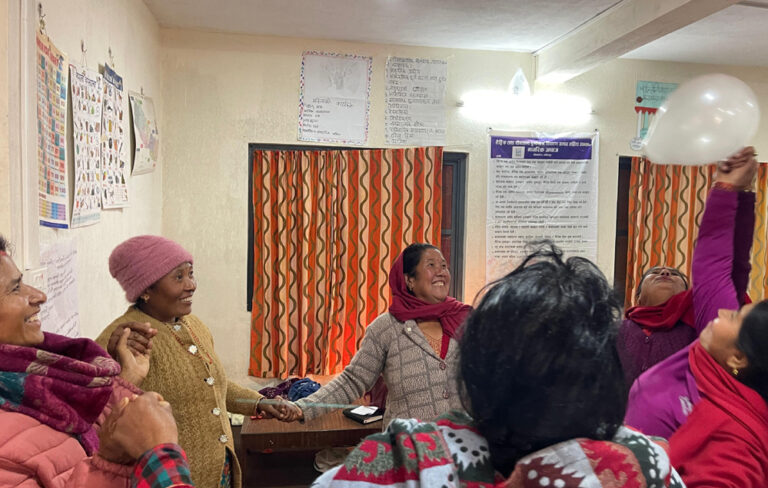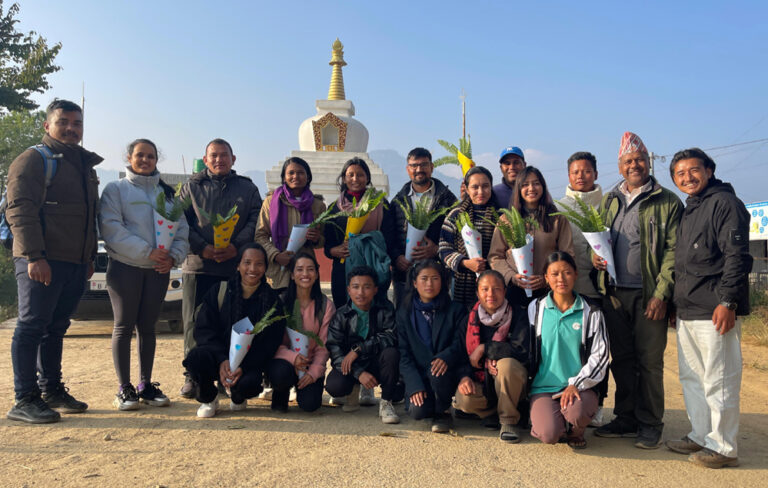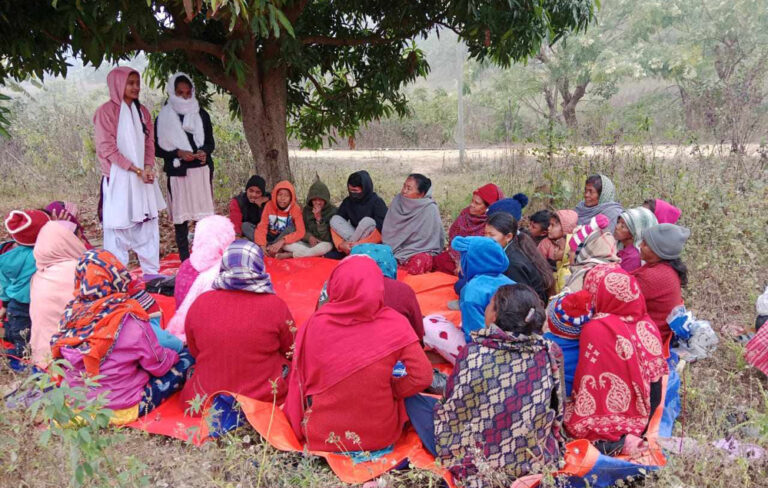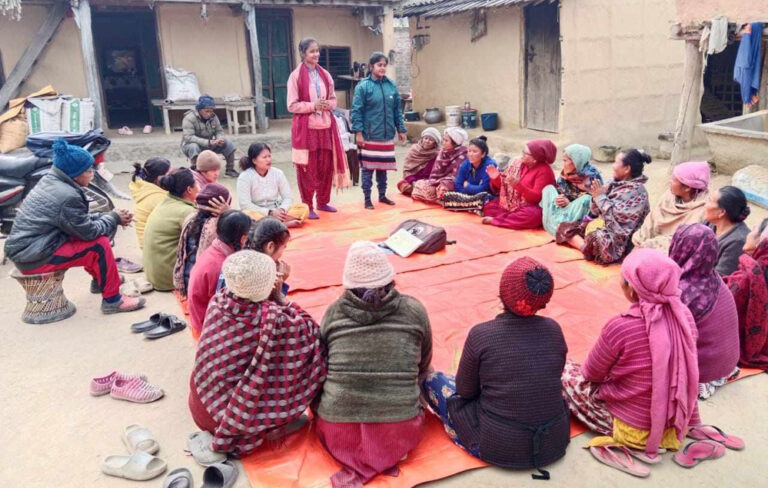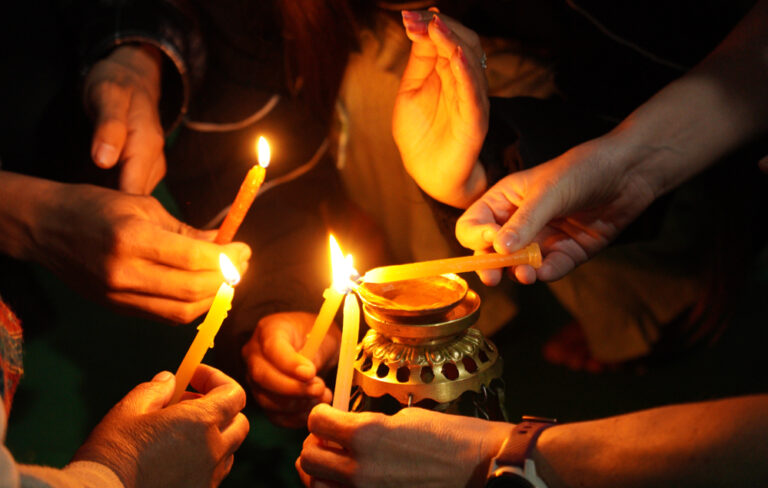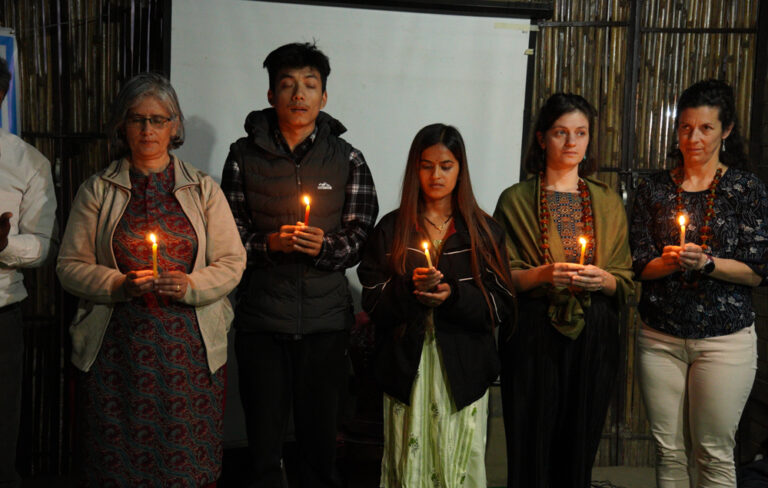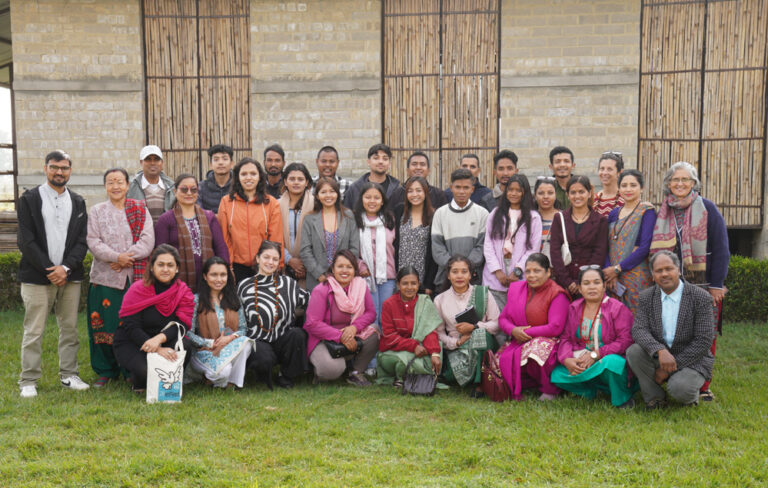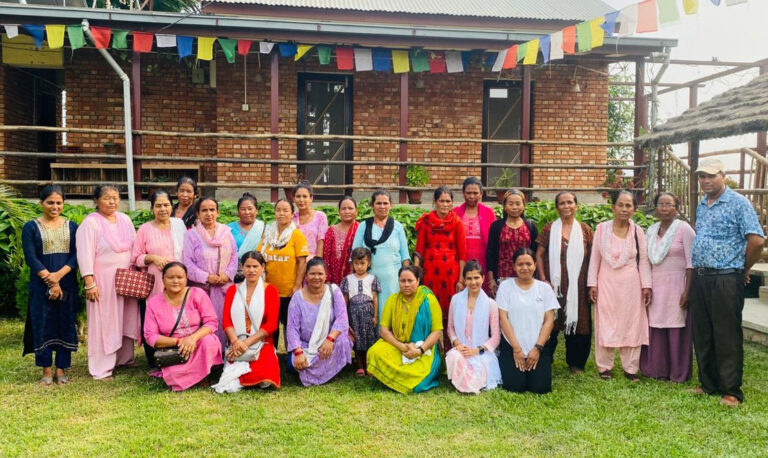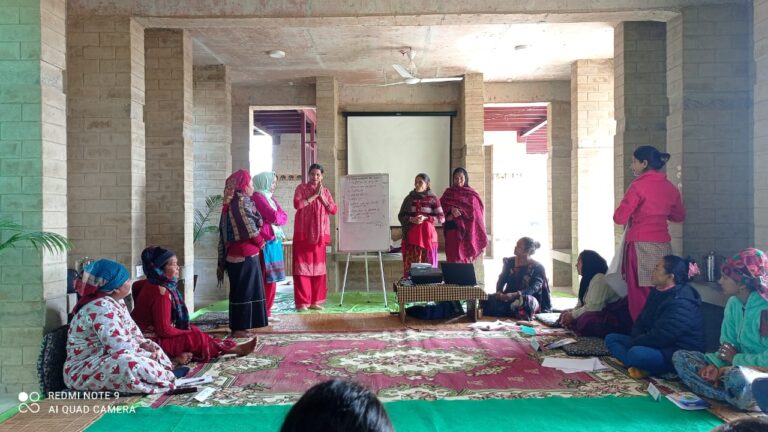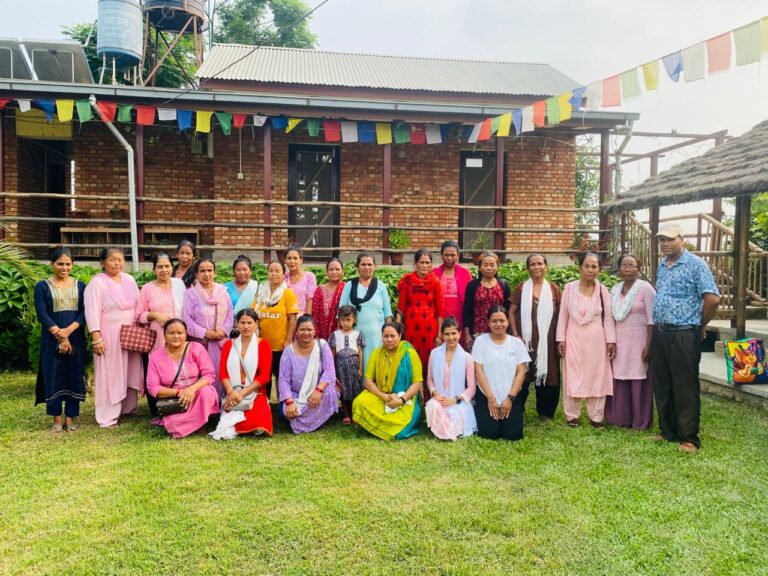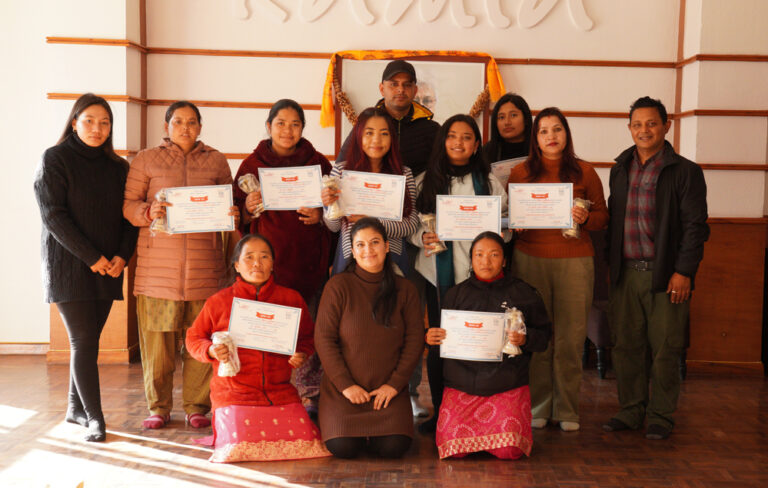peace practices
Community Safety Net (CSN)
The Community Safety Net (CSN) program, conceptualized by founder Rita Thapa is a collaborative effort led by Nagarik Aawaz and 11 partner organizations from July 2022 to June 2025. The program focuses on supporting socio-economically vulnerable and disaster-affected communities across 12 districts in Nepal. Its primary objectives include providing emergency relief, ensuring psychosocial well-being, and helping communities rebuild their lives, while also strengthening women’s leadership and advocacy through policy dialogues and networking with local and provincial policymakers.
One of the key interventions of the CSN program was its response to the earthquake in Bajhang, Bajura, Jajarkot, and West Rukum. Nagarik Aawaz established 18 Community Peace Kitchens, serving hot meals to an average of 500-600 people daily for over two months. This initiative not only addressed immediate needs but also helped foster community resilience and solidarity. The program also responded to fire-affected communities in Saptari, providing meals and emotional support to over 400 people, including women and children.
Additionally, following flash floods in September, the CSN team, in partnership with local organizations, provided relief to flood-affected communities in Nawalpur. The team set up a Community Peace Kitchen for a week, serving meals to 120 affected individuals. These efforts have created safe spaces for healing and mutual support, demonstrating the power of collective action in times of crisis. Through these initiatives, the CSN program has proven essential in addressing urgent needs, promoting community resilience, and empowering marginalized groups to lead in times of disaster.
Community in Leadership (CIL)
The Community in Leadership (CIL) program, running from February 2024 to July 2026, focuses on providing Interim Reparative Measures (IRM) to survivors of Conflict-Related Sexual Violence (CRSV). In the absence of state-provided reparations, the program offers medical, psychological, and financial support to help survivors rebuild their lives. Through this initiative, the program aims to ensure that survivors are not only supported but also empowered to take leadership roles in their own healing journey.
The CIL program is grounded in a survivor-centered approach, with key elements of co-creation and survivor-to-survivor support. The program was designed in collaboration with survivors through Focus Group Discussions (FGDs) and community consultations, ensuring that their voices are at the heart of every decision. Two provincial steering committees, with more than 50% survivor representation, lead the decision-making process. Women Peace Facilitators (WPFs), who are themselves CRSV survivors, play a critical role in identifying and supporting other survivors, creating a strong network of solidarity and trust within the community.
Most significant achievements has been the active involvement of 30 CRSV survivors as Women Peace Facilitators (WPFs). These women, many of whom had never shared their experiences before, have been trained in leadership, counseling, and community engagement. As WPFs, they visit communities to identify other survivors and provide referrals for psychosocial counseling. This program has not only provided essential support but also empowered survivors to take charge of their healing, build their agency and advocate for their rights, creating lasting change within their communities.
Changemakers for Sustainable Peace (CMSP)
The Changemakers for Sustainable Peace (CMSP) program focuses on empowering youth and women in the communities and is being implemented in Devichaur and Ghusel in Lalitpur, and Prasauni and Baghkhor in Nawalpur district from January 2023 to December 2025.
The program aims to strengthen local ownership of peacebuilding efforts and increase the participation of marginalized women in decision-making both at home and in the community.Through the leadership of 4 Peace Ambassadors, 20 Peace Volunteers, and 60 Community Peace Initiators, CMSP has fostered awareness and dialogue on issues like mental health, gender equality, conflict transformation, and women’s empowerment. These efforts have created safe spaces for community members, such as peace centers where women’s groups meet, youth clubs gather, and children have access to learning resources. Local institutions, including school management committees and ward offices, are playing a key role in sustaining these initiatives, with schools beginning to prioritize psychosocial well-being and mental health.
The program has seen tangible results, with communities becoming more engaged in peacebuilding and conflict transformation. Ownership of communities has supported the creation of a psychosocial counseling room and a Mediation Center, while the ward office in Devichaur has provided space for peace center activities. These spaces have grown in importance, offering individuals a place to connect, learn, and heal. As a result, mental health awareness has risen, and communities are beginning to recognize their collective power to address challenges and build a more peaceful future.
Local Capacities for Peace (LCP)
Nagarik Aawaz has been implementing the Local Capacities for Peace (LCP) program since April 2017, Initially launched in Siraha and Kanchanpur, the program expanded to Nawalpur in 2019 and continued its work in these areas through 2024. Today, LCP operates through five peace centers across these districts, in partnership with local organizations like Mukti Nepal, the Conflict Victim Single Women Development Center, and Nagarik Aawaz itself.
One of the main goals of LCP is to build youth leadership in peacebuilding. The program has empowered young people to become active leaders in their communities, helping to create a more peaceful and harmonious environment. As a result, many youth participants have taken on roles in local government, further strengthening the impact of the program. Through its peacebuilding activities, LCP has reached over 20,000 households, fostering social justice, conflict transformation, and community cohesion.
The program has not only raised awareness of the importance of peacebuilding but also enhanced the recognition of its partner organizations and youth leaders as key contributors to local peace efforts. By working together, these groups have made significant strides in promoting social harmony, transforming conflicts, and empowering communities to sustain peace in the long term.
Deepening Women Peace Table (WPT)
The Deepening Women Peace Table (WPT) program has played a pivotal role in empowering conflict-affected women across all seven provinces of Nepal. The program is being implemented in NA since July 2021 to December 2024. The program focused on addressing the immediate and long-term reparative needs of these women while advocating for justice and transitional justice issues. The Intergenerational Women’s Peace Table bridges the gap between first- and second-generation conflict affected, fostering dialogue and building relationship between parents and children. This space promotes healing and provides a safe space for women and youths from different generations to connect and work toward peace.
This grassroots initiative, coordinated by six provincial coordinators, has helped conflict-affected women emerge as leaders in their communities, advocating for gender justice and transitional justice. Through these tables, women have not only shared their personal stories but also worked together to address their reparation needs, fostering solidarity and resilience. The program has significantly improved women’s confidence, with many women now actively participating in community development and decision-making.
The program has created safe spaces for women to heal, express themselves, and build connections with their families. It has strengthened relationships between mothers and children, with counseling playing a crucial role in helping participants overcome trauma and daily life stress. The program has also enhanced community relationships, promoted the concept of everyday peace, and sensitized local institutions to the needs of conflict-affected women. Through these efforts, the program has contributed to long-lasting changes, empowering women to take charge of their healing and advocating for their rights, making significant strides toward a just and peaceful Nepal.
Women Living with Dignity (WLD)
The Women Living with Dignity (WLD) program, is supporting conflict-affected women in Nawalpur district from 2024 to 2026. The program works on improving the psychological, physical, and economic well-being of women who have suffered from violence, loss, and discrimination during the conflict. By empowering women with the skills and confidence to lead peace initiatives, WLD helps restore their dignity and builds their leadership in advocating for peace and security.
Through training in gender equality, conflict transformation, peacebuilding, and basic psychosocial counseling, 20 Women Peace Facilitators (WPFs) have gained the knowledge to support their communities. These women, many of whom are survivors of sexual violence, domestic abuse, or loss during the conflict, are now playing key roles in promoting peace and helping others heal. The program has also focused on empowering women economically, with WPFs opening personal bank accounts for the first time, boosting their confidence and self-reliance.
In addition to supporting the women themselves, WLD provides educational opportunities for the children of conflict-affected women, helping to build responsible citizens for the future. The program’s holistic approach ensures that women not only heal from their past trauma but also take active roles in their communities, contributing to lasting peace and social change.
